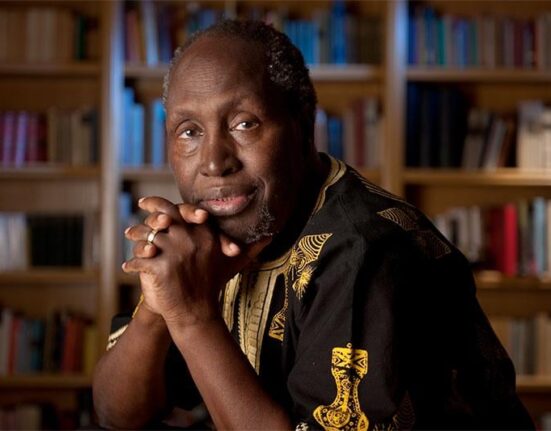Ngugi wa Thiong’o, a towering figure in African literature, has left an indelible mark on the literary landscape through his profound works that delve into the complexities of colonialism, postcolonialism, and the African experience. Born as James Ngugi on January 5, 1938, in Kamiriithu, Kenya, he navigated a path that would lead him to become a celebrated author, essayist, playwright, and literary critic. His journey from humble beginnings to international renown is a testament to his unwavering dedication to storytelling and activism.
Growing up in a large family, Ngugi wa Thiong’o’s formative years were shaped by the rich tapestry of Kenyan culture and the legacy of colonialism that loomed over the country. Educated at mission-run schools and later at prestigious institutions like Makerere University College in Uganda and the University of Leeds in England, he honed his craft and sharpened his perspective on the world. It was during this time that he made a pivotal decision to reclaim his identity by shedding his birth name, James Ngugi, and embracing the name Ngugi wa Thiong’o as a powerful symbol of resistance against colonial influence.
Ngugi wa Thiong’o’s literary career is a testament to his unwavering commitment to amplifying the voices of the marginalized and challenging the status quo.
His groundbreaking play “The Black Hermit,” performed in 1962, marked the beginning of a prolific journey that would see him rise to prominence with works like “Weep Not, Child” (1964) and “The River Between” (1965). Through his novels, plays, and essays, he delved into the tumultuous history of Kenya, exploring themes of colonialism, the Mau Mau Uprising, and the quest for independence with unparalleled depth and nuance. His poignant narratives captured the essence of the African struggle for self-determination and liberation, resonating with audiences far and wide.
Beyond his literary achievements, Ngugi wa Thiong’o’s advocacy for the preservation and elevation of African languages in literature set him apart as a visionary in the literary world. Writing primarily in his native Kikuyu language, he championed the importance of linguistic diversity and cultural authenticity in storytelling. His works, translated into numerous languages, transcended borders and brought the rich tapestry of African narratives to global audiences, fostering a deeper appreciation for the continent’s diverse literary traditions.
Ngugi wa Thiong’o’s unwavering commitment to political activism and advocacy for African self-determination underscored his role as not just a writer but a fearless champion of justice and equality.
His critical views on the Kenyan regime led to his imprisonment, prompting his exile to England and later the United States. Despite facing adversity and persecution, he continued to raise his voice against colonial oppression and advocate for a more just and equitable society. As a professor of literature, he inspired countless students to engage critically with the world around them and to use their voices as instruments of change.
Throughout his illustrious career, Ngugi wa Thiong’o produced a body of work that resonated deeply with readers and scholars alike. From seminal works like “A Grain of Wheat” (1967) and “Petals of Blood” (1977) to groundbreaking texts like “Decolonizing the Mind: The Politics of Language in African Literature” (1986) and “Wizard of the Crow” (2006), his contributions to African literature are nothing short of monumental. His short story “The Upright Revolution: Or Why Humans Walk Upright,” translated into over 100 languages, stands as a testament to his enduring legacy and the universal appeal of his storytelling.
As news of Ngugi wa Thiong’o’s passing reverberates across the literary world, tributes pour in from admirers and scholars who have been touched by his work. His profound impact on African literature and his unwavering dedication to social justice will continue to inspire generations to come. In his memory, we honor a literary giant whose words transcended boundaries and whose vision illuminated the path towards a more inclusive and equitable world. Ngugi wa Thiong’o may have left this world at the age of 87, but his legacy will endure as a beacon of hope and resilience for all who seek to make a difference through the power of storytelling.









Leave feedback about this